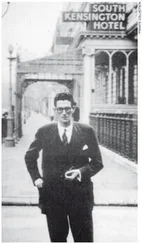Those who never reappeared were duly recorded in the regimental files. A few months later, once the full-blown trench war of stasis was underway, their families received a letter, no different from the hundreds of thousands to follow, communicating the news, with official sadness, that a husband, son or brother was missing. Yet there were some who were neither dead nor captive.
At dawn on 26 August 1914, Robert Digby, Private No. 9368, and his comrades in the Hampshire Regiment trained their rifles across the clover and beet fields north of the small town of Haucourt, and waited for the enemy. The offensive of Le Câteau had begun. As the day brightened the sound of shelling grew steadily louder. In the darkness of the night before battle, an officer had read aloud passages from Sir Walter Scott’s poem ‘Marmion’, a thumping epic full of appropriate granite-hewn sentiment.
Where shall the traitor rest,
He, the deceiver,
Who could win maiden’s breast,
Ruin, and leave her?
In the lost battle,
Borne down by the flying,
Where mingles war’s rattle
With groans of the dying.
And when the mountain sound I heard
Which bids us be for storm prepar’d
The distant rustling of his wings,
As up his force the tempest brings.
At nine in the morning, the attack finally began, and the officers of the Hampshire Regiment had ‘the pleasure of seeing Germans coming forward in large masses’. Under cover, a handful of Gennans crept up to the Hampshires’ position and shouted ‘Retreat!’, in English. It all still seemed to be a public school game. British snipers tried to pick off the machine-gun crews and officers, distinguishable by their swords. Heavy fire was exchanged and then, inexplicably, the guns on both sides fell quiet. ‘The stillness was remarkable; even the birds were silent, as if overawed.’ Just as suddenly, the battle resumed with deafening violence. Grey troops rushed across the clover, and it was ‘as if every gun and rifle in the German army had opened fire’. Too late, the order was given for the Hampshires to withdraw. Seizing rifle and pack, Private Digby joined the throng fleeing down narrow lanes. As dusk gathered, the chaos spread. ‘We marvellously escaped annihilation,’ Private Frank Pattenden wrote in his diary. ‘It was nearly wholesale rout and slaughter.’ Lurching south, the regiment began to dissolve, mixing with other fragments of the disintegrating rump of the British army. At nightfall, a small contingent of 300 Hampshires briefly held on in the village of Ligny, but then fell back once more, leaving behind dozens of injured men in a temporary dressing station. The walking wounded made their way into the woods, and the remainder waited in the darkness.
The Hampshires tramped on through the night across fields, snatching two hours’ sleep beneath a hedgerow. In the morning they stumbled into the village of Villers-Outréaux, where a German battery awaited them, having leap-frogged the retreating British in the dark. It opened up when the Hampshires were a hundred yards away. A force of fifty men under Colonel Jackson was left to provide cover, and fought dismounted German cavalry and cyclists with rifle and bayonet as the main body of troops scrambled away. Jackson was shot in the legs and carried into the home of the local curé, where he was captured a few hours later. Private Pattenden, struggling south on bleeding feet, noted the gaps in the ranks and the many missing men: ‘I am too full for words or speech and feel paralysed as this affair is now turning into a horrible slaughter … my God it is heart breaking … we have no good officers left, our NCOs are useless as women, our nerves are all shattered and we don’t know what the end will be. Death is on every side.’ The tall figure of Private Robert Digby was last seen by his comrades clutching a bloodied arm in the temporary dressing station in Ligny. A German bullet had passed through his left forearm, narrowly missing the bone, a debilitating ‘Blighty wound’ – the sort of injury that was survivable but deemed serious enough to warrant a passage home – that men would later long for in the trenches.
When Robert Digby re-emerged from the surgeon’s tent, his arm hastily bandaged and held in a rough sling, he was no longer part of a moving mass of men, but alone. ‘I lost my army,’ he would later observe ruefully. He had also lost his Lee Enfield rifle, his bayonet, 120 rounds of ammunition, his peaked cap, his knapsack, and his bearings.
Captain Williams, the surgeon of the Hampshire Regiment, was tending the wounded when the Germans stormed into Ligny. But by then Digby had taken solitary flight. A final, brief and unemotional entry in British military records concludes his official contribution to the Great War: ‘Private Robert Digby, Wounded: 26th August, 1914.’
The previous day, William Thorpe, a tubby and genial soldier of the King’s Own Lancaster Regiment, had been sitting down to breakfast in the corn stubble above Haucourt when his war started. Thorpe and the other men were tired, having marched for three days to meet the advancing German forces, but their spirits were high. ‘The weather was perfect,’ noted one of Willie’s officers, and even the spectacle of Belgian refugees fleeing south, as ‘dense as the crowd from a race meeting but absolutely silent’, had not much dampened the mood as the King’s Own marched from the railhead. The soldiers whooped at a reconnaissance plane flying overhead, which came under ragged fire from somewhere in the rear, although Captain Higgins declared the aircraft to be British.
Lieutenant Colonel Dykes had led the column of twenty-six officers and 974 other ranks past a tiny church north of Haucourt, down a gentle slope to a stream, and then up a steep hill to a plateau on the extreme right of the British line, before he gave the order to rest. ‘A full 7 to 10 minutes was spent admonishing the troops when it was found that some had piled their weapons out of alignment.’ The time might have been better spent looking at the horizon. An hour earlier the troops had been ‘greatly reassured’, although amazed, by the sight of a French cavalry unit, clad in their remarkable plumes, breastplates, and helmets: handsome and conspicuous imperial anachronisms. Since the French advance guard was supposed to be out ahead of the British troops, an officer declared that the enemy ‘could not possibly worry us for at least three hours’. This was, therefore, an excellent moment to eat breakfast.
As they waited for the mess cart to arrive, the officers observed another group of uniformed horsemen some 500 yards away, which paused to watch the relaxing troops before trotting away. One of the younger officers quietly suggested that the cavalrymen might not be French, and was sharply told ‘not to talk nonsense’. The men were lounging and talking in groups in the quiet cornfield; the sun was growing warm when the mess cart finally rumbled up. On top of the wagon perched the regimental mascot, a small white fox terrier, clad in a patriotic Union Jack coat, that had been adopted before leaving Southampton. ‘New life came to the men’, who leapt to their feet, mess tins at the ready.
At that moment the German Maxim guns opened up. Colonel Dykes was killed in the first burst, shot daintily through the eye, his groom making ‘a valiant attempt to hold his horse until it also was killed’. ‘Some tried to reach the valley behind,’ but the older and cannier soldiers lay flat on their faces and hugged the earth, as the bullets flicked the tops of the cut corn stalks. ‘Of those who got up, most were hit.’ After two minutes of uninterrupted firing, the German gunners paused to reload and the survivors scrambled for cover below the crest of the hill. For the next five hours, what remained of the regiment was pounded with shells. Through field glasses, the future Field Marshal Montgomery observed the ‘terrible sight’ and then followed orders to try to help the trapped Lancasters. ‘There was no reconnaissance, no plan, no covering fire. We rushed up the hill.’ With predictable results. This was ‘terrible work as we had to advance through a hail of bullets from rifles and machine guns and through a perfect storm of shrapnel fire. Our men … were knocked down like ninepins.’
Читать дальше












